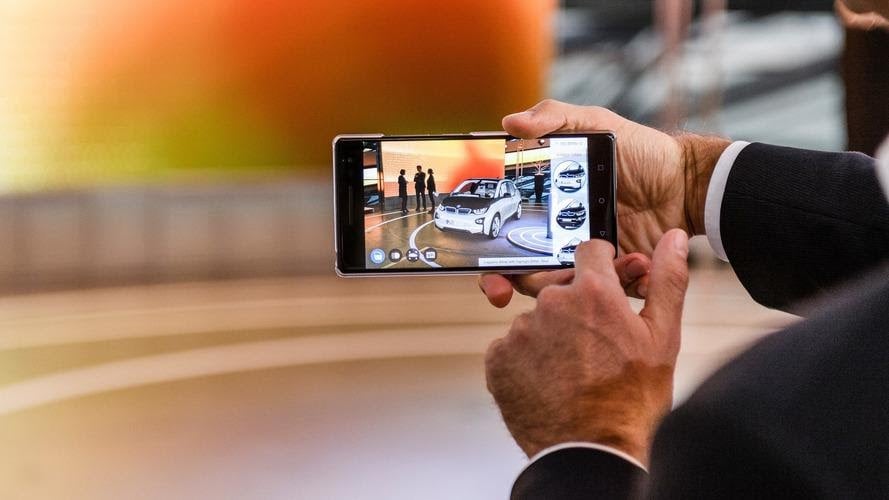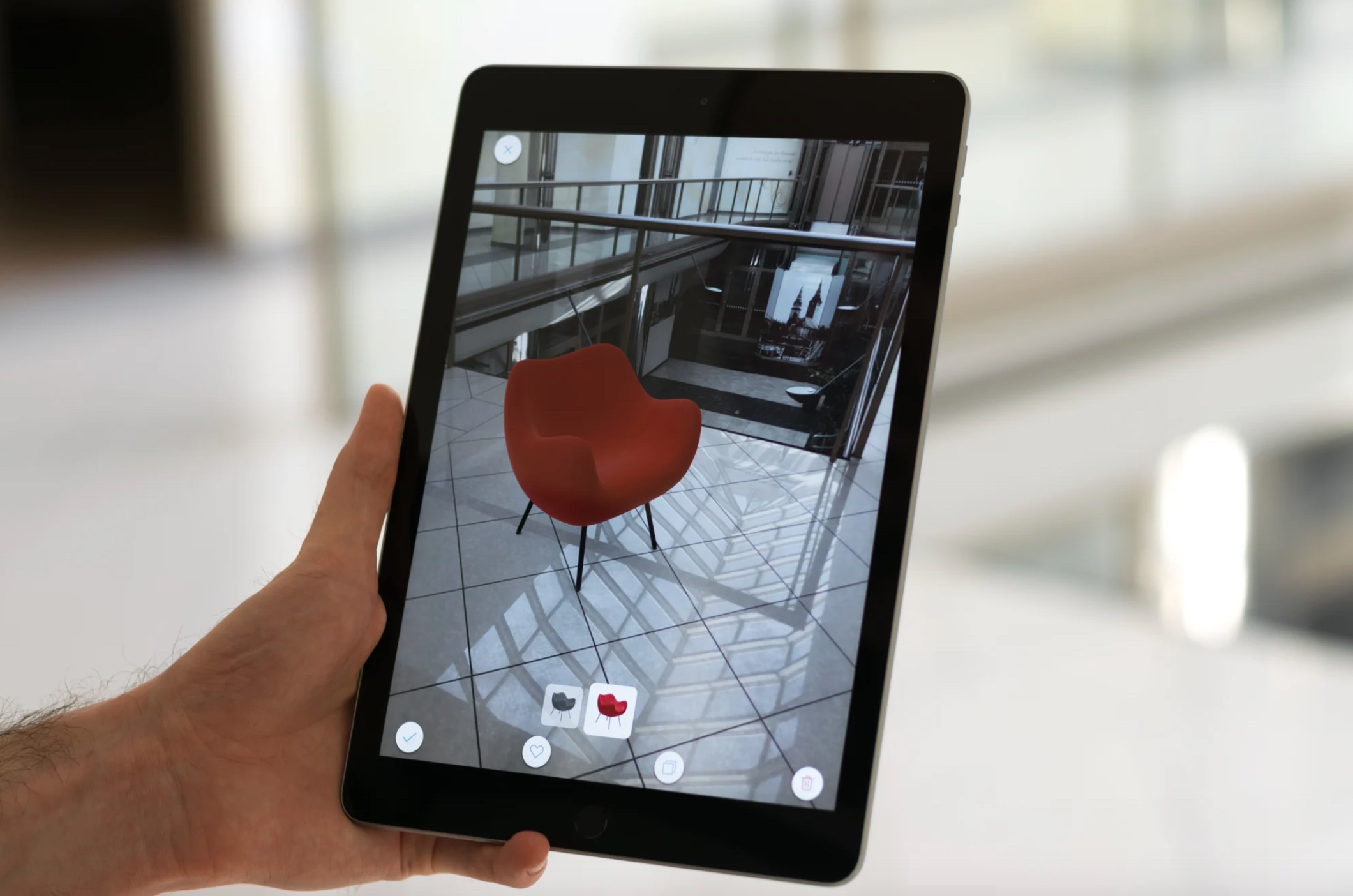12 Reasons to Use Product Customization Software
Product customization software gives customers the ability to customize products to better meet their own preferences and requirements. They’re intuitive and fun to use and they can form a central part of any e-commerce seller’s customer experience strategy.
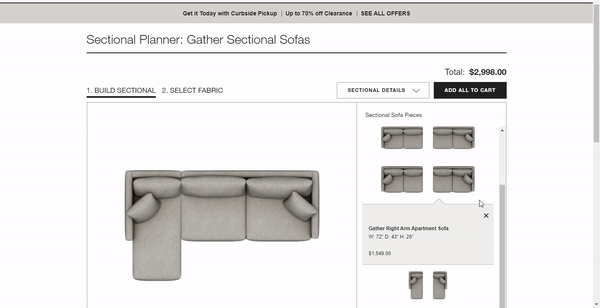
But what’s really in it for the seller and is the investment worth it? Read on to discover the 12 advantages of using customization software.
1. Charge premium prices
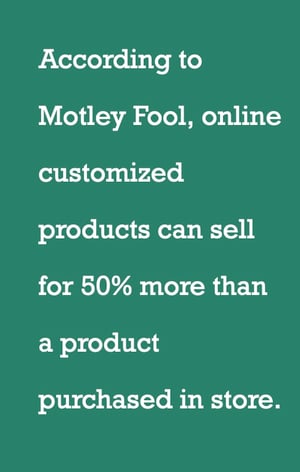 According to Motley Fool, online customized products can sell for 50% more than a product purchased in store. Customers perceive more intrinsic value in a product that they’ve helped create—and they’re willing to pay more for it.
According to Motley Fool, online customized products can sell for 50% more than a product purchased in store. Customers perceive more intrinsic value in a product that they’ve helped create—and they’re willing to pay more for it.
2. Build brand loyalty
Brand loyalty means that your brand, products, and services are front-of-mind when a customer considers a product in your niche—you’re their go-to retailer. Brand loyalty leads to higher-rated positive online reviews and person-to-person recommendations. According to Deloitte, 33% of customers would recommend a product or service if it could be customized.
Customer loyalty isn’t an easy metric to quantify but it’s not unfair to assume that if you offer an excellent user experience, users are more likely to reward that experience with brand loyalty. Using product customization allows customers to get exactly the product they want...pretty much the best way to cultivate loyalty.
3. Manage delivery expectations

Customized products can take longer to produce and ship because they aren’t picked straight out of the warehouse. In a consumer market where delivery time expectations are high and customers have been used to next-day delivery, it’s surprising that a Deloitte study found 48% of customers would be willing to wait longer for a product they’ve customized.
4. Make data-driven decisions
Sellers have a range of methods to learn about their customers. Free tools like Google Analytics can give sellers insights into how users behave on their sites but customization software is a powerful addition for gathering user data about how customers directly interact with your products.
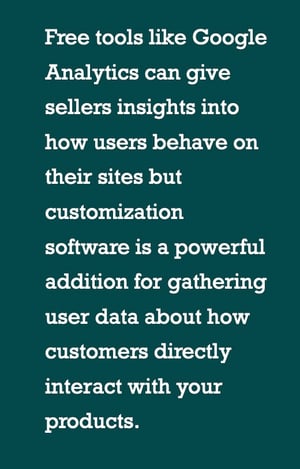 Sellers can see patterns and trends relating to the customer customization process. A famous example is Coca-Cola’s campaign of putting names on bottles. The drinks giant started by putting a few hundred popular first names on bottles. After seeing that the campaign was received so well, they started giving users the option to personalize bottles themselves. Once they’d gathered customization data, Coca-Cola rolled out the personalization campaign to larger-scale audiences such as businesses and corporate events. Instead of making assumptions about their market, they used customer interaction to make changes to their business model—in a sense, customization is basically free market research.
Sellers can see patterns and trends relating to the customer customization process. A famous example is Coca-Cola’s campaign of putting names on bottles. The drinks giant started by putting a few hundred popular first names on bottles. After seeing that the campaign was received so well, they started giving users the option to personalize bottles themselves. Once they’d gathered customization data, Coca-Cola rolled out the personalization campaign to larger-scale audiences such as businesses and corporate events. Instead of making assumptions about their market, they used customer interaction to make changes to their business model—in a sense, customization is basically free market research.
5. Reduce returns
This one’s easy: if a customer can customize a product to exactly match their preferences and requirements, the chances that they’ll return that product are massively reduced. Returns have serious knock-on effects: increased logistics and storage costs, reduced brand loyalty and repeat custom, lower-rated reviews, and fewer recommendations.

6. Stay competitive
Customization software like 3D product configurators and augmented reality used to be e-commerce nice-to-haves. Two factors have changed this: firstly, the move to online shopping has rapidly increased in 2020 as many bricks-and-mortar stores closed and may remain closed. Secondly, there’s a growing consumer trend towards customization and personalization and a movement away from mass-produced, off-the-shelf purchases.
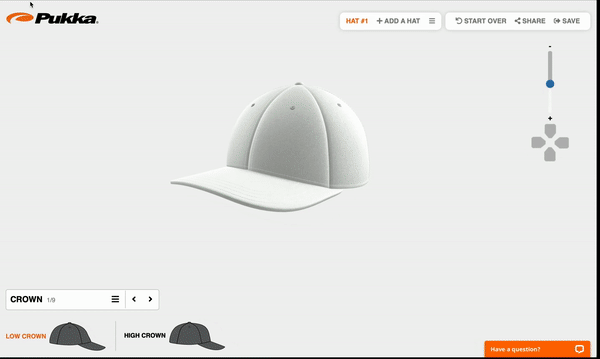
Meetings these two shifts in buyer behavior and expectations will help keep your business relevant and competitive. The equation is simple: if your business gives a customer the chance to customize a product so that it exactly meets their needs, why would they shop elsewhere?
7. Higher net promoter score (NPS)
The global management consultancy company Bain reported that businesses who use product customization software achieve 50% higher net promoter scores (NPS). NPS can be used to measure the quality of a service or experience and the likelihood that a customer will recommend your business.
8. Target the gift market
B2C sellers can use customization to target the gift market even if they haven’t done so previously or their products aren’t obvious gift product choices. If your products can be customized then they can be customized to meet the preferences of a specific person. As Anthony Flynn says in his book Custom Nation, “… imbuing products with custom elements increases their gift appeal.”
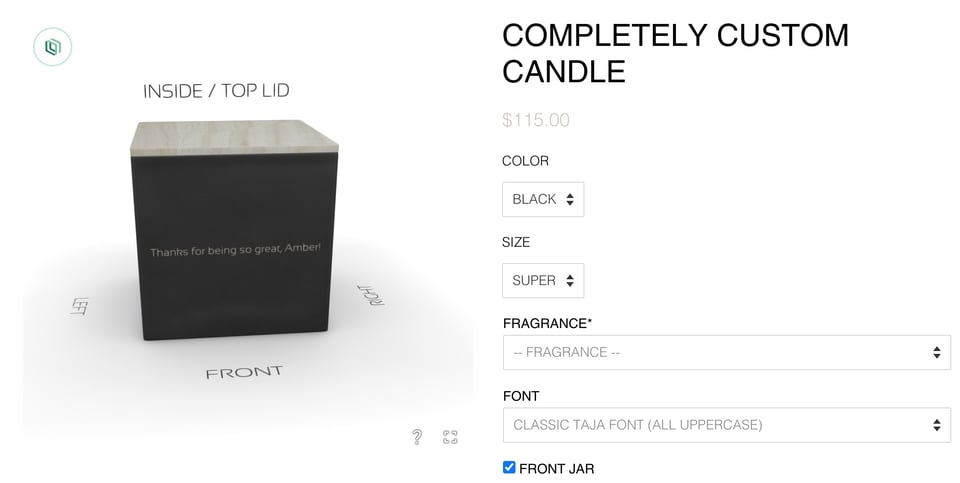
By adding personalization functionality, for example the ability to add the recipient’s initials, makes a product more attractive as a potential gift. This isn’t all that difficult to do: simply repurpose a category page to contextualize your products as gifts and adjust your messaging.
9. Attract millennial shoppers
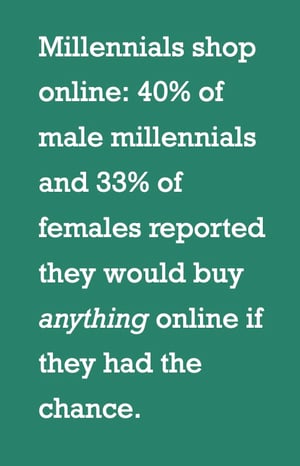 Millennials have three attributes that make them lucrative market demographics: digital skills, spending power, and the desire for unique, one-off products. Millennials shop online: 40% of male millennials and 33% of females reported they would buy anything online if they had the chance. But their preferences are markedly different from those of their baby boomer parents. Millennials are drawn towards engaging experiences, individual choice, and the desire to co-create rather than consume. Giving your millennials the chance to customize their own products covers all these bases.
Millennials have three attributes that make them lucrative market demographics: digital skills, spending power, and the desire for unique, one-off products. Millennials shop online: 40% of male millennials and 33% of females reported they would buy anything online if they had the chance. But their preferences are markedly different from those of their baby boomer parents. Millennials are drawn towards engaging experiences, individual choice, and the desire to co-create rather than consume. Giving your millennials the chance to customize their own products covers all these bases.
10. Reduce reliance on third-party sellers
So many retailers rely on third-party sellers to sell their products and services, giving them a cut of the profits for the privilege. Implementing product customization software on your business’ own site gives users a reason to shop directly through your store, increasing your margins. While on your site there’s also the opportunity to push add-ons, upsells, and to take advantage of other conversion opportunities such as signing up for your mailing list.
11. Increase SEO performance
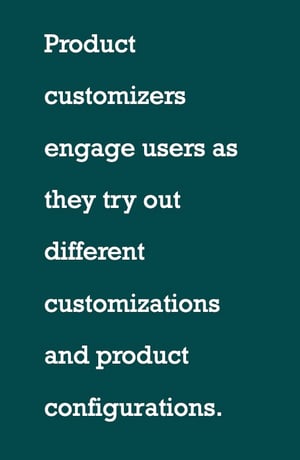 A side benefit of people using customization software on your site is the positive impact on search engine optimization (SEO). Product customizers engage users as they try out different customizations and product configurations. This leads to increased time on site and reduced bounce rate (this is the percentage of users who leave—or “bounce”—within a given website session). Analytics platform SEMRush, lists time on site and bounce as the second and fourth most influential signals, respectively, used by Google when it determines where to place your website in search results. In other words, using customization software might help you rank better in Google searches.
A side benefit of people using customization software on your site is the positive impact on search engine optimization (SEO). Product customizers engage users as they try out different customizations and product configurations. This leads to increased time on site and reduced bounce rate (this is the percentage of users who leave—or “bounce”—within a given website session). Analytics platform SEMRush, lists time on site and bounce as the second and fourth most influential signals, respectively, used by Google when it determines where to place your website in search results. In other words, using customization software might help you rank better in Google searches.
12. More conversions
Combined, the positive impact of customization software on user experience results in one key metric: more sales. Artifilabs reports that “e-commerce conversion rates see a dramatic increase when product customization is offered, with some increasing over 50%.” For B2C sellers, this means more products in customer’s carts and more completed purchases. For B2B businesses, this means an increased volume of quotations and orders processed, without increasing staff levels i.e. a reduced reliance on sales reps to create quotes, negotiate, and close deals.
If you’re thinking of implementing this game-changing technology into your own online business, we’ve put together a list of 11 key tips to help you get started.

